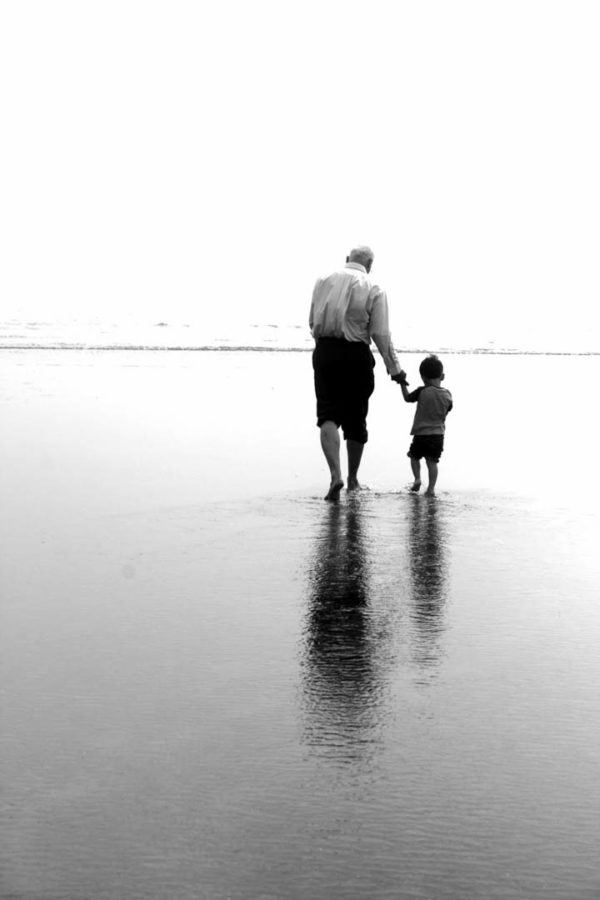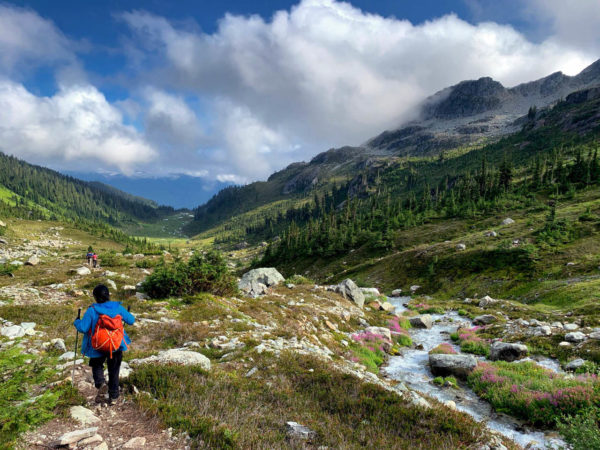Any word that connotes an ideology scares me. Any word that needs to be suffixed with ‘ism‘ evokes the skeptic in me. No matter however much I do believe in the concept, and align with the vegan lifestyle, any form of dogmatic presupposition and rampant proselytizing denigrates ‘veganism’ to nothing more than a propaganda. And there is a lot of that going on these days. I don’t usually talk about veganism partly because I don’t feel like adding to the noise that already exists out there, and also due to the fact that I don’t think I am well informed enough to add anything substantial.
However, I have been trying to adhere to a vegan, or better term being plant-based lifestyle, over the past four years and I have been fielded with questions about the why and how innumerable times by my very good friends and acquaintances. This post deals into the snippets of those discussions and conversations, which happened in-person, and not online.
I am stating this to assert the fact that the tone, body language and subtle expressions that adds context and meaning to those face-to-face conversations will be lacking in this post. And in any case, as Karl Popper famously quoted,
It is impossible to speak in such a way that you cannot be misunderstood: there will always be some who misunderstands you.
Karl Popper
I know that using this quote as a disclaimer and establishing this communication gap as a ground reality doesn’t absolves me from making thoughtless comments or to offend any sentiments out there, but it does provide me some lee-way to float my thoughts a bit more freely.
So, why did I choose to go vegan?
Well, the question itself has the answer contained within. The answer being because the unique combination of my current situation, context and assumptions within the limited sphere of my knowledge at this stage of my life affords me the privilege of exercising that choice.
That may seem like a convoluted answer or an over simplified one depending on how you perceive it. But for me, it is neither. Depending on one’s belief and power of rationalization, there are a good number of benefits that one can list – and is often listed – as reason behind choosing to lead a vegan lifestyle. Although a lot of these benefits are being capriciously thrown around these days, in general they can usually be categorized in one of the three groups:
- Sustainable living & minimizing carbon footprint
- Preventing cruelty against animals
- Associated health benefits
My response as to why I chose to lead a vegan lifestyle deliberately did not included any of these purported benefits. These benefits are good incentives, but not sufficient enough to motivate me to forego a lifestyle that I followed for well over 30 years of my existence!
The key word here is choice. I had the power to choose, and so I did.
This response, I hope, very well answers some of the hypothetical counter questions I often get, such as:
Would you still be vegan if I were living in an arctic zone where agriculture and plant based goods (not just foods) are more difficult to get and procure?
Well, if the hypothetical situation were to come true, then in that case I would not have had the choice that I have today. Hence, the very important role played by the current situation and context here. I have options, relatively easily available, that enable me to lead a plant-based lifestyle, unlike the Eskimos living in the Arctic!
Another word used in my answer was assumptions. I assume, based on superficial research and anecdotal evidence, that the purported benefits of choosing to lead a vegan/plant-based lifestyle are true.
I do believe that properly designed vegan lifestyle is more sustainable than available alternatives. The land and resource use associated with animal based products (not just food), meat and dairy industry causes more greenhouse gas emissions than a locally sourced plant-based lifestyle, including but not limited to diet only.
A couple of examples that come to mind being: A locally manufactured fabric or jute handbag contributes to lesser GHG than an equivalent leather bag. Think of all the processing, tanning and dyeing that goes in the manufacture of leather good (bags / jackets / boots) versus that of a fabric based alternative. Without diving deeper into this topic, and just focusing of all the ways this could be applied in our lifestyle choices, I choose fabric/synthetic products (think car upholstery, boots, bags, jackets, etc.). This logic can be extrapolated to food choices as well; local fruits and grains versus meat and poultry and so on.
The word ‘locally grown’ becomes quite important here as far as GHG concerns go. If I choose to eat avocados from South America, Mangoes from India and Coconut juice from Thailand, then overall the GHG associated with packaging and transportation will probably outweigh the emissions from that of a locally killed cow or a pig.
Moving on to the second category of benefits now, prevention of cruelty against animals. Well, plants do have life as well right? So what gives us right to kill them and not animals. Well, even if everything about the feelings and sentience of plants is true, all I can say is that instead of hurting and damaging both plants and animals, I just cause damage to one group and not all groups.
And there is no contention to the fact that plants are living, but we do not know if they are sentient and feel pain. And I am not seeking solace or trying to hold a moral high ground here. If tomorrow a new study comes out and does indeed prove that plants do have nervous systems and pain receptors and are scared and hurt when we harvest and eat them, then what? Am I going to go solar? Infuse myself with chlorophyll and try to photosynthesize? No, I cannot do that and I’ll make peace with the status quo then. But as of today, within the finite scope of my knowledge, I cannot see the fear or sadness in the eyes of the plants whose fruits I choose to pluck and that gives me peace.
For cruelties imposed on animals by the dairy and meat industry, just an open mind and a quick Google search will do. If you’re interested you can diver deeper with research papers and publications. The thing that deeply moved me and made me consider vegan/dairy-free lifestyle was this vicious life-cycle of dairy cows:
- The natural lifespan of a cow is 15-20 years, the average lifespan of dairy cows is around 5 years They’re sent to slaughter soon after their production levels drop
- To keep them lactating at optimal production capacities, cows are artificially and repeatedly and forcibly impregnated year after year using a device that the industry calls a ‘rape rack’. This cycle of forced pregnancy creates a huge surplus of calves
- Virtually all dairy calves are separated from their mothers within hours of birth in order to maximize profit; which is super stressful for the mother as well as the offspring
- Since it is cheaper to kill and profit from male calves than rear them, they are sent to a sale yard or abattoir at five days or older. Many of these calves are used for veal for food products or hides for leather goods
- Female calves are fed with milk-replacers and reared to enter the dairy production cycle
- Trapped in this cycle of forced impregnation, continuous lactation and constant emotional stress, most dairy cows’ become feeble and produce less milk at around 4 to 5 years of age, at which point they are slaughtered
I simply couldn’t fathom that the food I relished are a product of ‘rape’. I couldn’t see it any other way. I didn’t mean to offend anyone with any of the comments above. I am simply stating what moved me towards making the change. I can post links and videos here, but I would refrain from doing so.
And with regards to the last of the purported health benefits, I do choose to believe being that of the health benefits associated with vegan lifestyles. To be politically correct, it has been working for me well and I cannot generalize that for everyone.
I don’t think I have felt energy deprived or bonked in the past four years since going vegan. And while these are not the definitive benchmarks of being healthy and fit, I have ran some of my longest and steepest trail runs, climbed my hardest boulders and my hardest sport route and in general felt fitter, energetic and cognitively competent. I am not saying that I can attribute this solely to a change in my dietary preference at the risk of discounting all the base that was built during my non vegan years. The point being underscored here is the fact that going vegan hasn’t been detrimental to my athletic or cognitive performance.
So there it goes, the reason for me leading a vegan lifestyle being the context and situation putting me in a privileged position to make a choice and go with my assumptions and belief systems, which have been progressively bolstered by the anecdotal evidence on this journey so far that I have embarked four years ago.
So why don’t all of us, who have similar enablers and privileges give vegan lifestyle a try at least?
I can’t speak for all, but for me, ignorance. Being ignorant was what kept me away from pursuing it earlier in my life was lack of understanding of the impact that I was making as a vegetarian and dairy loving being. The impact that I could have easily mitigated by some seemingly simple changes otherwise. Once I was made aware of the impacts, alternatives and choices, it was a relatively easy decision for me.
In a nutshell, like we all do, I chose the option that removed friction and helped me reduce my cognitive dissonance. And personally for me, since I always have been a vegetarian all my life, the barrier to making this change was relatively easy. All I had to cut out was dairy. Easier said than done, but the drive to reducing the dissonance was greater than the drive to get dopamine hit from those dairy treats – cheese, chocolate milk, Indian sweets in general – you name it.
Why don’t others do it? Well, there are a few possible explanations, in addition to ignorance, that come to my mind. First being denial. One can choose to outright deny the impacts of a lifestyle based on animal products.
Second one being rationalization. We humans can be very adept at rationalizing our choices in our efforts to reduce cognitive dissonance. I chose to reduce the dissonance by bringing about a chance in behavior. Another way to reduce the same is by rationalization, i.e., realigning our attitudes and belief systems as the barrier to behavioral change may be difficult enough to overcome.
And third, more rudimentary explanation could simply be inertia and a resistance to change. Because it involves giving up on status quo, usually involving things that give us pleasure, comfort and convenience.
Personally, when I started following a vegan diet, milk-based Indian sweets was something that I sorely miss, delicious treats that my friends savored as I watched. The pleasure quotient is indeed there, and it’s not always easy to overlook. So far, the intensity of these temptations is inversely and exponentially proportional to time; i.e. the longer I stick with vegan diets, the weaker the urge for eating non-vegan foods.
Thinking about comfort and convenience comes down to ease of access to alternatives and social norms. Example, it is much more easier to obtain nut-based milk alternatives in Vancouver/Squamish than some of the places that I have lived in or traveled in south-eastern United States. In places where you don’t have the luxury of options al all or have to make do with limited choices, often sub-par ones, the barrier to sustaining a vegan lifestyle is quite high.
Following a vegan lifestyle is not easy in a culture and community where the concept is completely alien. India, for example worships Cows and thrives on cow’s milk from religious rituals to festivities and celebrations. In such situations, it is very inconvenient to try and adhere to a vegan diet for lack of easily accessible alternatives or at worse fear of offending cultural sensitivities.
There are a few more sustainable lifestyle choices that are not necessarily plant-based or vegan that I try and follow. Again, these are not the most convenient ones and incurs significant overheads in terms of time, effort and sometimes money. Some of these being
- Washable cloth diapers for my kiddo, instead of using disposable diapers
- Reusable produce bags instead of using plastic bags are grocery stores (same for carry bags)
- Use cruelty-free products; i.e. a product and its ingredients are not tested on animals
- Shop for products and take-outs with recyclable packaging
Where I am not super diligent and mindful is when it comes to climbing, especially at locations that are not close to where I live. Traveling for leisure or indulging in my hobbies is something that does contribute significantly to my carbon footprint and something that definitely offsets my other lifestyle choices.



